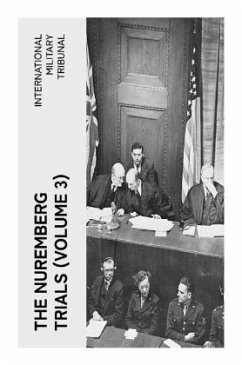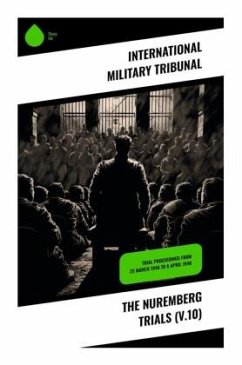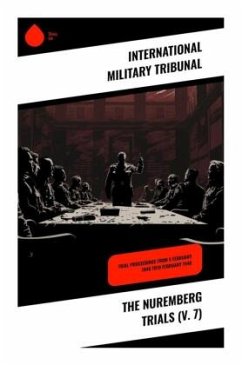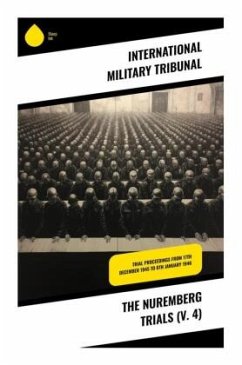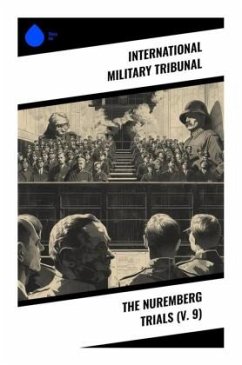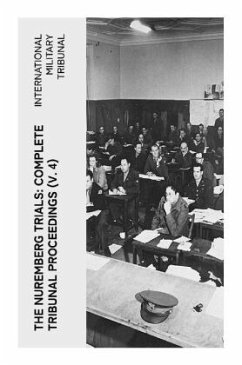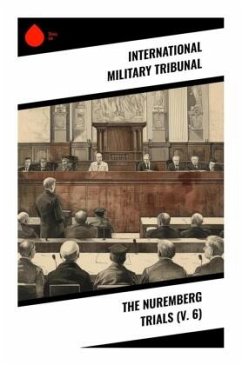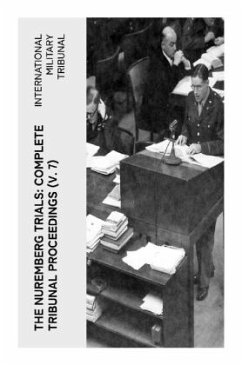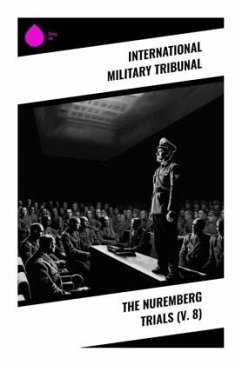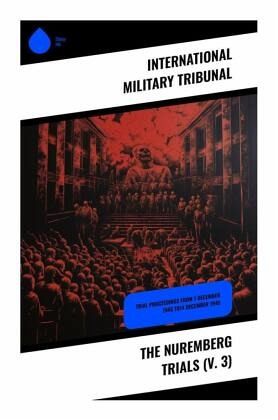
The Nuremberg Trials (V. 3)
Trial Proceedings From 1 December 1945 to14 December 1945
Versandkostenfrei!
Versandfertig in 6-10 Tagen
22,40 €
inkl. MwSt.

PAYBACK Punkte
0 °P sammeln!
The Nuremberg Trials (V. 3) delves into one of the most pivotal judicial proceedings in modern history, meticulously documenting the prosecution of major war criminals following World War II. This volume captures the essence of international law in action, offering a comprehensive analysis of the trials through meticulous transcripts, evidence submissions, and legal arguments presented. The language is both formal and accessible, reflecting the grave stakes of justice and accountability while remaining informative for both scholars and general readers. Through its rich detail, the book illumin...
The Nuremberg Trials (V. 3) delves into one of the most pivotal judicial proceedings in modern history, meticulously documenting the prosecution of major war criminals following World War II. This volume captures the essence of international law in action, offering a comprehensive analysis of the trials through meticulous transcripts, evidence submissions, and legal arguments presented. The language is both formal and accessible, reflecting the grave stakes of justice and accountability while remaining informative for both scholars and general readers. Through its rich detail, the book illuminates the complexities of legal principles such as crimes against humanity, and the ethical dilemmas faced by the tribunal, nestled within the broader socio-political context of post-war reconstruction and reconciliation. The International Military Tribunal was formed as a response to the atrocities committed during the war, marking a significant evolution in international law and human rights. Comprising eminent jurists from the Allied nations, the Tribunal sought to establish a historical record and a basis for legal accountability. This third volume reflects a collective commitment to justice, accountability, and the enduring struggle against tyranny, echoing the Tribunal's quest to address the horrors of totalitarian regimes and the necessity of judicial processes in healing nations. Readers interested in the evolution of international law, human rights, and the moral implications of justice will find The Nuremberg Trials (V. 3) an indispensable addition to their library. This work not only serves as a historical account but also as a cautionary tale, compelling us to confront the past's atrocities with an eye toward a more just future. Engage with this critical document of history to gain deeper insights into the foundations of contemporary judicial systems and the ongoing quest for human dignity.



